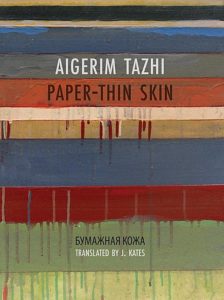By AINUR KARIM
Translated from the Russian by SLAVA FAYBYSH
Piece appears below in both English and the original Russian.

A typical apartment building in a residential area of Almaty.
Translator’s Note
There are probably many reasons why people in the West don’t know much about Qazaqstan. Not only do we not know much, but the little we do know is probably all wrong, as much of what we’ve heard is skewed by who told the story. Most people in the U.S. have never read a short story or seen a play or movie written by someone from Qazaqstan (not much is available, frankly). That’s why it was such a delight to be able to translate this excerpt from Ainur’s as yet unfinished novel.
I also imagine that many readers may not be aware of the existence of bride kidnapping, so my hope is that “Kidnapped” will not only introduce something new, but it will demystify the custom from the beginning. I myself did not know anything about this cultural practice until I sat down to translate the story. And now, being a translator means I get to share it with others. Bride kidnapping has been on the rise in Qazaqstan since the breakup of the Soviet Union. Having said that, Ainur made clear to me that the way it works in the real world varies, and it often doesn’t look quite like it does here.
—Slava Faybysh




